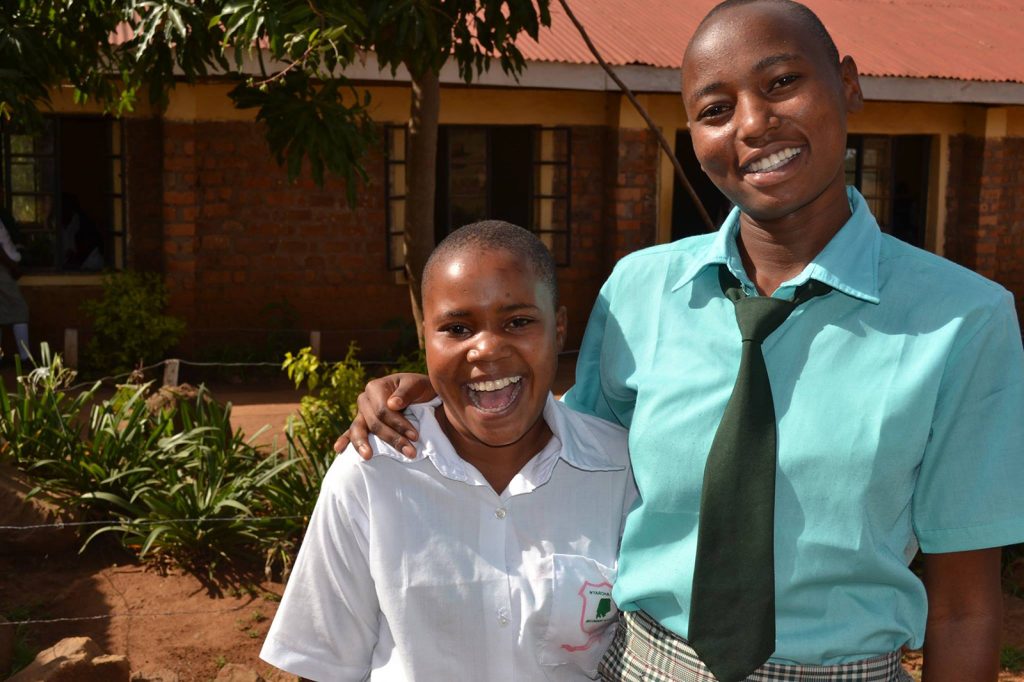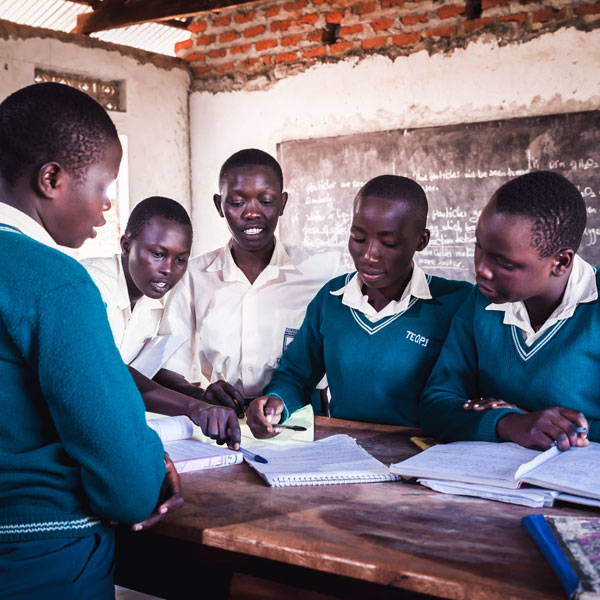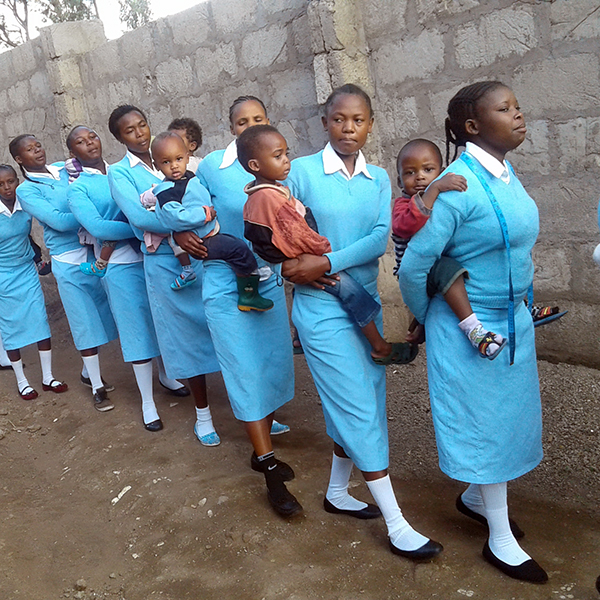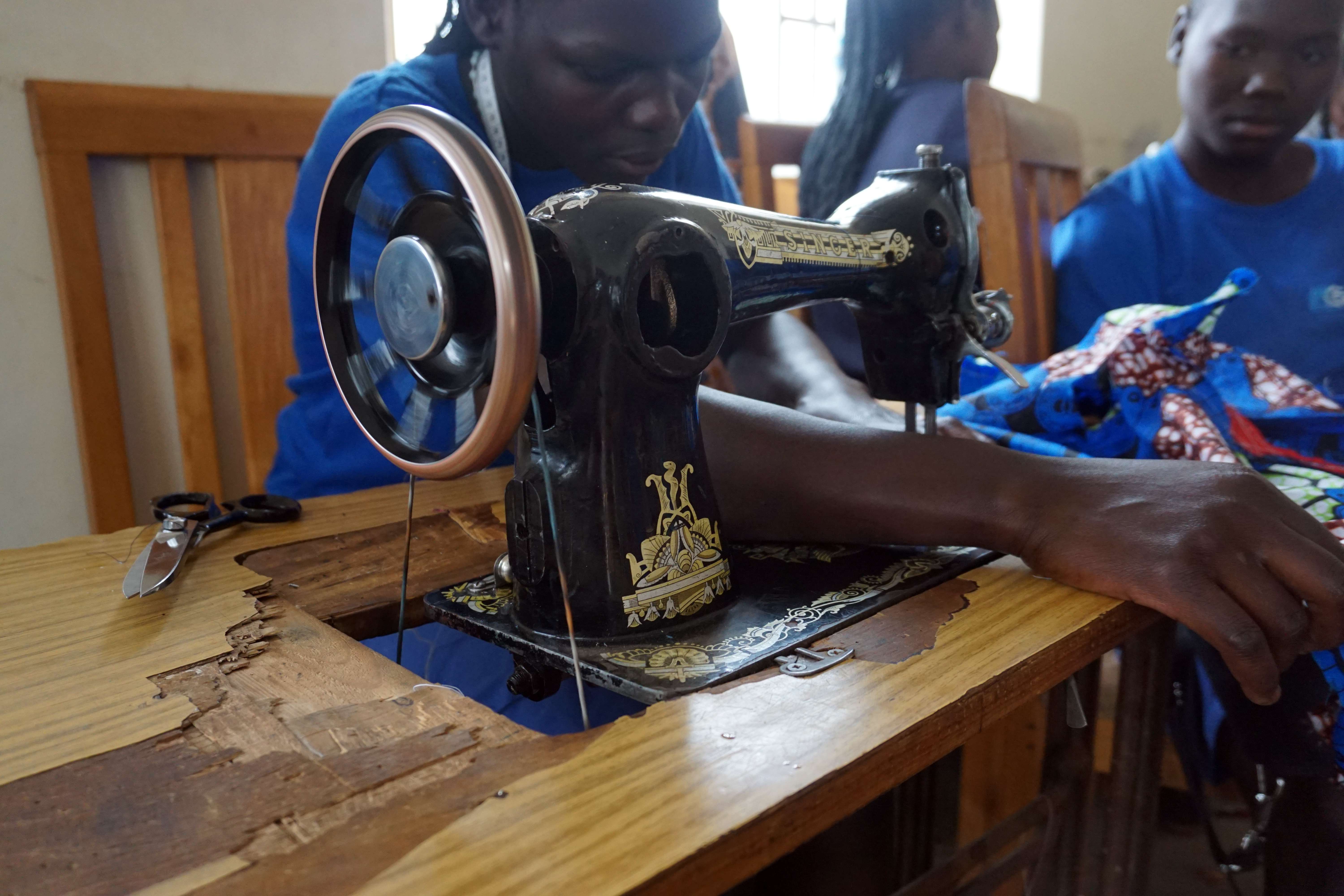By Caroline Knight, a GFC Programs Intern for Summer 2019
I decided to intern with Global Fund for Children because I was eager to learn about the intricacies of international economic development, with a specific interest in the funding and support for grassroots organizations. More importantly, engaging in work that would have an impact on children and youth deeply excited me.
Upon beginning my internship with GFC, I was tasked with researching some of the foundational elements that will inform a refreshed strategy for East Africa, with an emphasis on identifying regional needs and creating recommendations for how GFC can address those needs. The research and analysis was challenging, but it awarded me a valuable understanding of the plight that many children and youth face across the region.

Based on my research, here are some key conclusions about the needs of young people growing up in East Africa.
Gender Equity
First and foremost, young girls in East Africa must overcome cultural and legal barriers to garner life outcomes similar to their male counterparts. The disenfranchisement of young girls takes a multitude of forms, including academic, professional, and relational. As an example, young girls in Tanzania are unable to return to school after becoming pregnant due to the discriminatory legal framework at play.
Violence & Exploitation
Expanding beyond a gender lens, exploitation and violence against young boys and girls alike is endemic. Sexual and gender-based violence (SGBV), child labor, early marriage, physical violence, and various types of trafficking are prevalent across the region.
Education
Insufficiencies in the educational system jumped out at me as a major concern in the region. The quality of education, enrollment and retention rates, and access for marginalized groups like girls, refugees, and disabled children and youth are all pressing issues. These inadequacies in the educational system reflect cultural norms, while also reflecting governmental insufficiencies in providing education.
Youth Engagement
The educational system plays into high levels of youth who are not engaged in education, employment, or training (NEET) across the region. Dramatic NEET levels showcase a deeper need for supplemental educational services to bridge gaps in the educational system, in addition to a need for stronger workplace readiness programming in the region.
The Environment
Environmental degradation is a growing concern in the region as climate change exacerbates the environmental crises and affects the food supply. In a region where agriculture is the primary industry, and subsistence agriculture is the primary food source, finding solutions to combat climate change and eliminate harmful environmental practices is critical.
This learning process, coupled with deeper engagement in GFC affairs, has shown me the essentiality of organizations like GFC in addressing the systemic challenges of Eastern Africa. Whether through addressing issues like female genital mutilation and child marriage, or educational insufficiencies and youth unemployment, GFC manages to have an impact on the lives of children and youth through its multi-faceted model of support.
For example, providing unrestricted funding to locally led organizations enables East African communities to handle challenges in culturally sensitive ways without a list of strings attached that could hinder their effectiveness or ability to innovate. Moreover, GFC aids these transformative organizations with their capacity development in a collaborative way, in addition to expanding their organizational networks and offering advisory support.
Although my time at GFC is coming to a close, I look forward to following its passionate and gifted staff as it traverses old and new problems facing children and youth. I also anxiously await to see how these insights feed into an East Africa strategy to further the lives of East African youth.



